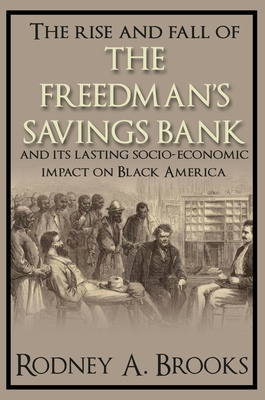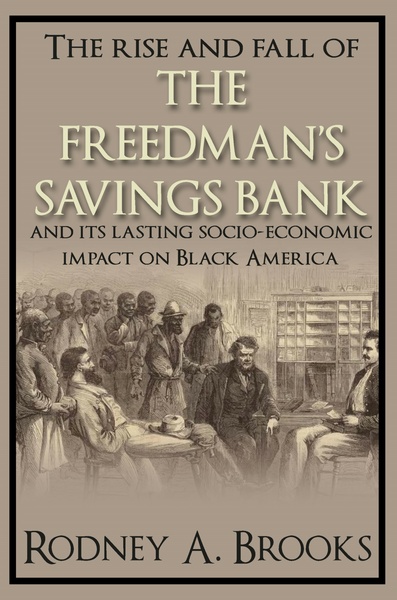The Rise and Fall of the Freedman's Savings Bank
And its lasting socio-economic impact on Black America
The author tells the history of the Freedman’s Savings Bank, how it grew much too quickly, why it failed and the impact on Black America. The Freedman’s Bank offered a safe depository for formerly enslaved people, expanded quickly and gained millions in deposits – mostly ranging from $5 to $50. But inexperience and corruption doomed it to failure, costing may of the small depositors their savings.
- AvailablePaperback9781910151495200 pagesList Price: GBP 19.95 Add to basket
- AvailablePDF9781913507527200 pagesList Price: GBP 9.97 Add to basket
The author tells the history of the Freedman’s Savings Bank, how it grew much too quickly, why it failed and the impact on Black America. The end of slavery in the United States left thousands of enslaved people with the need to survive the transition to freedom, including food, clothing, shelter, and medical care. They would also need education, money and financial services. In 1865 Congress passed legislation to create the Freedman’s Bureau to provide those services. It also created the Freedman’s Savings Bank. Large numbers of the formerly enslaved people had been paid for service in the Union Army – the first time many had cash. And they had no safe depository. The Freedman’s Bank offered that, expanding quickly and gained millions in deposits – mostly ranging from $5 to $50. But inexperience and corruption doomed it to failure, costing many of the small depositors their savings. Some of the biggest issues facing Black consumers today may be able to trace their roots back to this debacle, from the historical distrust in banks to the racial wealth gap.
Why publish now?
On the heels of the social justice protests of 2020 and the Covid pandemic, some of the persistent and long-lasting problems facing Black Americans bubbled to the top. Black Americans suffered more than White Americans – they got sicker and died more frequently. In addition, they bore the brunt of the job losses economically and business failures.
White Americans (and many Black Americans) learned about how vibrant Black communities like Black Wall Street in Tulsa, Oklahoma, were burned to the ground by angry White mobs, destroying generational Black wealth. The racial wealth gap was pushed to the forefront of the debates.
Many of those issues in the wealth gap – including the distrust of Banks and the lack of generational wealth in the Black community can be traced back to the collapse of the Freedman’s Savings Bank and the resulting loss of wealth and generational wealth in Black America.
This book will put the Freedman’s Savings Bank in the conversation with reparations, Baby Bonds and financial literacy.
Rodney A. Brooks, former Deputy Managing Editor/Money at USA TODAY, is the author of the book Fixing the Racial Wealth Gap: Racism and Discrimination Put Us Here, But This Is How We Can Save Future Generations. The book was a winner of the National Association of Black Journalists’ (NABJ) Outstanding Book Award in 2022 and also made the shortlist for the Society for Advancing Business Editing and Writing (SABEW) Third Annual Best in Business Book Awards. A recipient of the President’s Award from the National Association of Black Journalists, he was elected to the NABJ Hall of Fame in 2021. He was named a Senior Fellow at Prosperity Now in 2022.


